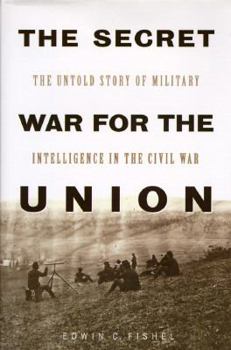The Secret War for the Union: The Untold Story of Military Intelligence in the Civil War
Select Format
Select Condition 
Book Overview
Most histories of the Civil War explain victory and defeat in terms of the skill of commanders and their troops. Intelligence records disappeared after the war, and thus a critically important element... This description may be from another edition of this product.
Format:Hardcover
Language:English
ISBN:0395742811
ISBN13:9780395742815
Release Date:January 1996
Publisher:Houghton Mifflin
Length:734 Pages
Weight:2.41 lbs.
Dimensions:1.8" x 6.3" x 9.3"














